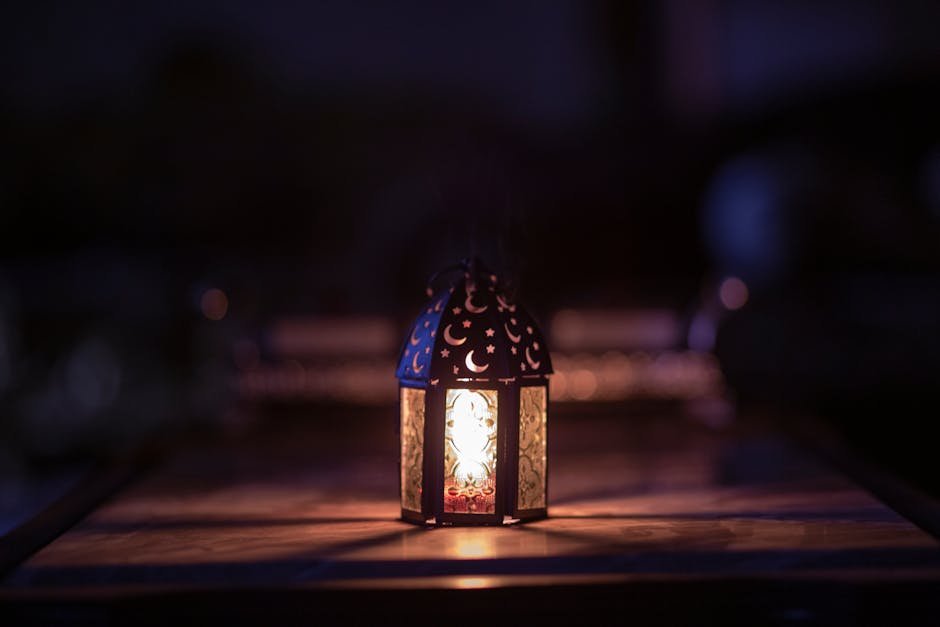Summary
- Ramadan in Egypt is a deeply spiritual and cultural experience, marked by fasting, prayer, charity, and community gatherings.
- As one of the holiest months in Islam, it fosters reflection, self-discipline, and unity.
- The streets come alive with festive lanterns, traditional decorations, and late-night markets.
- Egyptians gather for iftar and suhoor meals, engage in Taraweeh prayers, and participate in charitable acts.
- The month concludes with Eid al-Fitr, a joyous celebration of togetherness and gratitude.
- From vibrant social interactions to acts of generosity, Ramadan in Egypt offers a truly enriching and unforgettable experience.
Ramadan is one of the best festivals in Egypt as it is the time for reflection and soul-searching, where the month’s journey of finding bliss and enlightenment will begin. It is considered by many Muslims to be the path to spiritual awakening and true fulfillment. The holy month of Ramadan was made to offer guidance for all entire mankind and to understand the full differential criterion of right and wrong. It is known as the month of fasting, where the body, mind, and soul are cleansed.
Fasting is seen as a way to purify the soul, increase self-discipline, and empathize with those who are less fortunate by engaging in acts of charity, giving to the poo,r and those in need. Ramadan means to become burning, to become scorching, be blazing, to be glowing, and simply as “scorching heat.” It can be named in more than twenty-four languages and is famous all across Asia as Romzan.
Ramadan is a true universal force that allies with the stars of the heavens by opening a gate to finding a true sense of belonging and inner wisdom. Travelers from all over the world prefer to explore the streets of Old Cairo during the blessed month of Ramadan to witness the full allure, majesty, and grandeur of Islamic culture, history, and art of Egypt while enjoying the heavenly atmosphere of this celestial, ethereal month.
What Is the Holy Month Of Ramadan
The magnificent month of Ramadan is the holiest month in the Islamic world, which holds immense significance for Muslims worldwide. It is known as the month of fasting (sawm), the ninth month in the Islamic calendar, and one of the five main pillars of Islam. It is a month of fasting, prayer, unity, reflection, and community. The exact dates of Ramadan vary each year because the Islamic calendar is based on the lunar cycle.
It begins on the last night of the month of Sha’ban, which ends on the last night of the month of Ramadan. It usually lasts for twenty-nine to thirty days from the moment of witnessing a crescent moon at the moment of its beginning until the coming of the next one, which has to be confirmed by a fatwa from the responsible Islamic authorities of each of the Islamic countries. During Ramadan, Muslims fast from dawn until sunset while abstaining from all foods, drinks, and other physical needs.
The pre-dawn meal before the fast begins is called suhoor, and the meal to break the fast after sunset is called iftar. Aside from fasting, all Muslims must do Zakat and sadaqah (alms giving), commemorate Qadr Night, read & complete the Quran, abstain from all bad deeds and stay humble, and do Taraweeh prayer (Sunni Muslims).
Ramadan concludes with the celebration of Eid al-Fitr, which is a marvelous festive holiday that marks the end of the fasting period. It then becomes an epic time for family and friends to come together, exchange gifts, and enjoy very delicious meals while delving into the cultural and religious aspects of Ramadan, which are deeply rooted in Islamic traditions and history.
Ramadan’s Significance and Cultural Importance in Egypt
The incredible month of Ramadan in Egypt extends beyond its religious connotations and becomes a time of deep cultural importance. Egyptians are a deeply religious people, as proven by history, so by nature, the month of Ramadan is eagerly anticipated as it serves as a unifying force, bringing people together from all walks of life to find peace, comfort, and bliss.
The first commanded month of Ramadan took place around 624 CE, and from that point, it takes place annually according to the lunar calendar. It is a month of heightened spirituality, self-reflection, self-control, self-improvement, and enlightenment that provides a magical opportunity to strengthen one’s connection with Allah and renew one’s commitment to faith.
Ramadan is a true time for the family and the community to come together and bond by breaking bread and sharing meals such as the pre-dawn and sunset meals (suhoor and iftar). All the people gather for Iftar in large groups to break their fast and enjoy the ultimate sensations of solidarity and unity while enjoying the finest and most delicious Traditional Egyptian Cuisine.
During the month of Ramadan, the entire streets change through the hanging of many lanterns and decorations that bring a festive and enchanting atmosphere to the incredible streets, homes, and markets of Egypt. During Ramadan, the entire city of Cairo becomes the center for several entertaining nighttime activities that are religious and spiritual. Also, at night, everyone will engage in social activities, shopping, and entertainment across all the streets and marketplaces.
During Ramadan, all the media and television programs will be customized to showcase the cultural significance of this holy month. It is known to be the month of giving and charity where many people, Mosques, and charitable organizations distribute food and provisions to the needy, reinforcing the incredible spirit of compassion and generosity.
The Incredible And Unique Practices Of Egypt’s Ramadan
Ramadan is deeply linked with the fabric of society and holds immense cultural and religious importance. It is a time for spiritual reflection, family gatherings, communal solidarity, and acts of kindness and giving to the needy. The fasting is made to purify the soul, practice self-discipline, and bring forth a sense of empathy.
During this holy month, everyone will enjoy several incredible practices and observances that needs to be done which include of course fasting from dawn to sunset where everyone will refrain not only from food and drink, but also from all tobacco products, sexual relations, and any sinful behavior of any kind, Zakat and sadaqah (alms giving), Abstaining from all bad deeds and remain humble, Commemorating Qadr Night, Reading & completing the Quran, and Taraweeh prayer (Sunni Muslims).
Fasting is obligatory for all adult Muslims who are not acutely or chronically ill, elderly, traveling, diabetic, pregnant, breastfeeding, and menstruating. All the Muslims who exist with a midnight sun or polar night should follow the exact timetable of Mecca. Family and friends gatherings are the true beauty of this beautiful and blessed month.
The Declious Iftar and Suhoor Traditions in Egypt
Iftar is the main meal that breaks the fast and is served at sunset as the time of “magreb” where all the Families and friends gather to share this moment, thus creating a sense of unity, joy, harmony, and community. The meal typically starts with dates and water or milk or juice, following the example of the Prophet Muhammad, and then expands into a feast of various traditional Egyptian dishes. Some of the most popular dishes include stuffed grape leaves, koshari (a mixture of rice, lentils, pasta, and a spicy tomato sauce), falafel, and konafa (a sweet pastry made from shredded phyllo dough).
The pre-dawn meal Suhoor is another essential part of Ramadan in Egypt, which provides sustenance to endure the day of fasting ahead. All the Muslim Families wake up before dawn to share this light meal before the “Fajr” often including dishes like ful medames (mashed fava beans) and taameya (Egyptian falafel), plus they drink a considerable amount of water.
The Traditional Taraweeh Prayers and Ramadan Lanterns
The Taraweeh prayers are performed during Ramadan after the Aisha prayer, which is an integral part of the Egyptian Muslim experience during that holy month. These special nightly prayers take place in mosques and are an opportunity for spiritual reflection and communal worship. The recitation of the entire Quran is completed over the course of this month each night, which the prayer session lasting for an hour or more, with each night’s prayer featuring a portion of the holy book. They are considered not to be compulsory
One of the main corners of the festive spirit of Ramadan can be seen across the beautiful Ramadan lanterns known as Fanous, which can be found all over the streets of and in front of the houses all over Egypt. The tradition of Fanous dates back to the Fatimid Caliphate (909 AD – 1171 AD) and symbolizes the guiding light of Islam. These colorful lanterns, along with all the decorations, illuminate streets, homes, and shops, adding a magical touch of enchantment and ja oyful atmosphere to the evenings.
Ramadan’s Impact on Social Interactions and Family Gatherings in Egypt
Ramadan has the power to significantly positively influence all social interactions and strengthen all family ties in Egypt. The month encourages people to prioritize spending time with loved ones, friends, and relatives, and participating in fun community activities. The sense of unity and hospitality that prevails during Ramadan creates an atmosphere of warmth, joy, and togetherness, which would encourage all travelers to spend their holiday enjoying this blessed atmosphere.
Discover the Charitable Acts and Philanthropy in Egypt during Ramadan
The holy month of Ramadan is truly a time of giving through many honorable acts of Charity and philanthropy. The blessed month inspires individuals and communities to engage in acts of kindness and compassion by making a number of donations. Egyptians place great emphasis on giving to the less fortunate, providing food, and extending assistance to those in need. Many charitable initiatives and organizations work tirelessly to distribute meals, money, and medicine, organize clothing drives, and offer support to the underprivileged.
The Various & Amazing Preparations and Celebrations of Eid al-Fitr in Egypt
When the heavenly month of Ramadan comes to an end, anticipation builds for the joyous celebration of Eid al-Fitr, which marks the end of the month-long fast. Egyptians engage in elaborate preparations, such as shopping for new clothes, decorating their homes, and exchanging gifts. Special meals are prepared, and families come together to share in the festivities.
During this magical time, everyone will get to organize unique traditions and celebrations, which add to the charm and bliss of Eid al-Fitr. It is common to find children parading with toys and colorful clothes through the streets, singing and banging on drums, as they collect small treats and money from neighbors. All the Families also engage in communal epic prayers and visit the graves of loved ones, paying their respects and offering prayers for the deceased.









